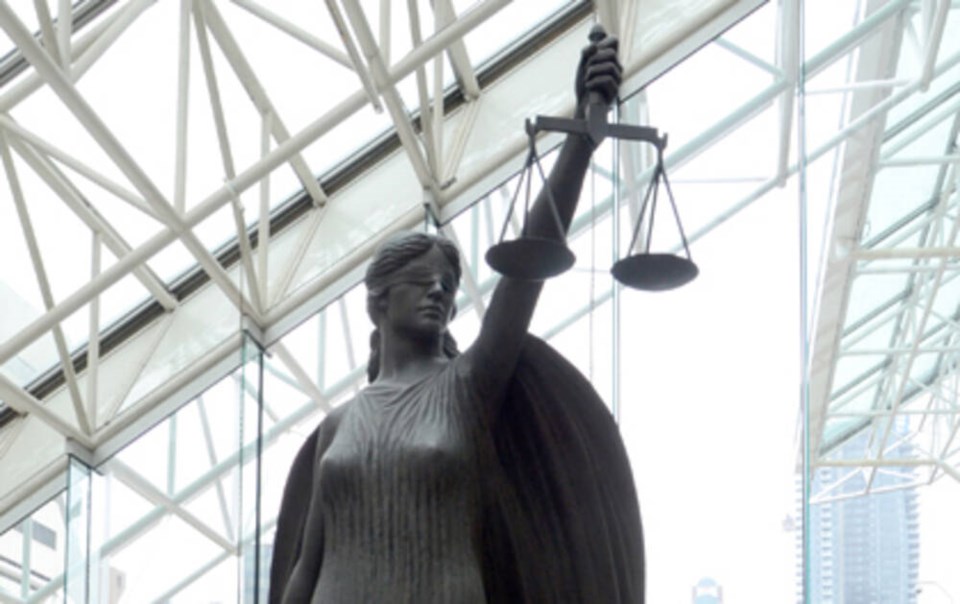The prosecution in the Ibrahim Ali murder case says an application to have his guilty verdict thrown out for delays should be dismissed because most of the delays were caused by Ali, his lawyers and events outside of the Crown's control.
A B.C. Supreme Court jury found Ali guilty in December of first-degree murder in the death of a 13-year-old girl, whose body was found in Burnaby's Central Park on July 18, 2017.
The girl's name is protected by a publication ban.
Ali's legal team has filed a so-called "Jordan" application to have his conviction thrown out because of court delays.
If the application were granted, Ali would go free without a sentence.
The Crown began its response to the application Monday.
The defence argued last week that the delay in the case had been between 52 and 60 months – far above the 30-month ceiling set by the Supreme Court of Canada in R. vs. Jordan.
But Crown prosecutor Daniel Porte said the total delay, once the court subtracts the delays caused by the defence and by events beyond the Crown’s control (such as the COVID-19 pandemic), was only 25 months.
"The majority of the time taken for the hearing of this matter is attributable to defence delay and discrete events," Porte said, "and the actions of defence counsel have been largely antithetical to their duties."
'I don't have to act reasonably'
Porte said all participants in the justice system are required to "work in concert to achieve speedier trials," and Ali's lawyers hadn't done that.
Porte pointed to McCullough's response in June when Justice Lance Bernard suggested the jury shouldn't have to watch the entirety of a long security video showing Ali’s cell phone lying on a counter at the Burnaby RCMP detachment to show what had happened to that piece of evidence.
"I don't have to act reasonably," McCullough said, according transcripts of the trial. "I don't have to prove continuity, and I can tell you, if the Crown doesn't, I will take full advantage of that, obviously."
Porte said those statements exemplified the defence's actions throughout the proceedings.
Porte said the defence made almost no admissions to streamline the case and withdrew its admissions about the DNA evidence shortly before the trial, adding weeks to the proceedings.
Porte further pointed to a "deluge" of pretrial applications the defence made 22 months after Ali was charged.
By the end of the trial, the defence had filed about 60 written applications that had to be argued without the jury present, according to Porte.
"The process of leaving no stone unturned will often be a time-consuming one, as it was in this case," Porte said. "The steady and unrelenting stream of defence applications, which the applicant continued to file right up to the waning days of the trial could only ever have resulted in a very lengthy trial process."
Exceptional events
The proceedings were also brought to a halt for days and weeks at a time because of ongoing complaints from Ali about headaches, illness, pain and drowsiness, culminating in an assessment after the beginning of the trial in April to determine if he was fit to stand trial.
That assessment, which found Ali, "fit but fragile," delayed the trial by weeks.
Weeks were also lost before the trial began, when Ali's earlier defence team quit in August 2020.
Porte also noted exceptional events that were beyond the Crown's control, including the COVID-19 pandemic, which continued to cause delays even after the courts reopened.
Porte argued the case was also "particularly complex," noting there had been 392 days of appearances, and 111 witnesses had testified before the trial even began.
The case also involved nine expert witnesses, including a sexual assault expert who died unexpectedly during the trial.
The Crown is expected to continue its response to the delay application this week.
Follow Cornelia Naylor on X/Twitter @CorNaylor
Email [email protected]



